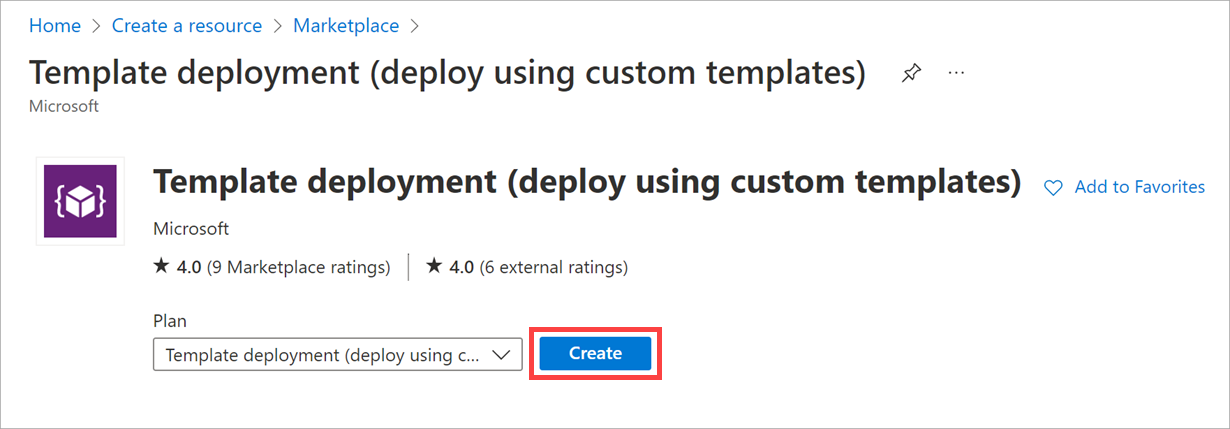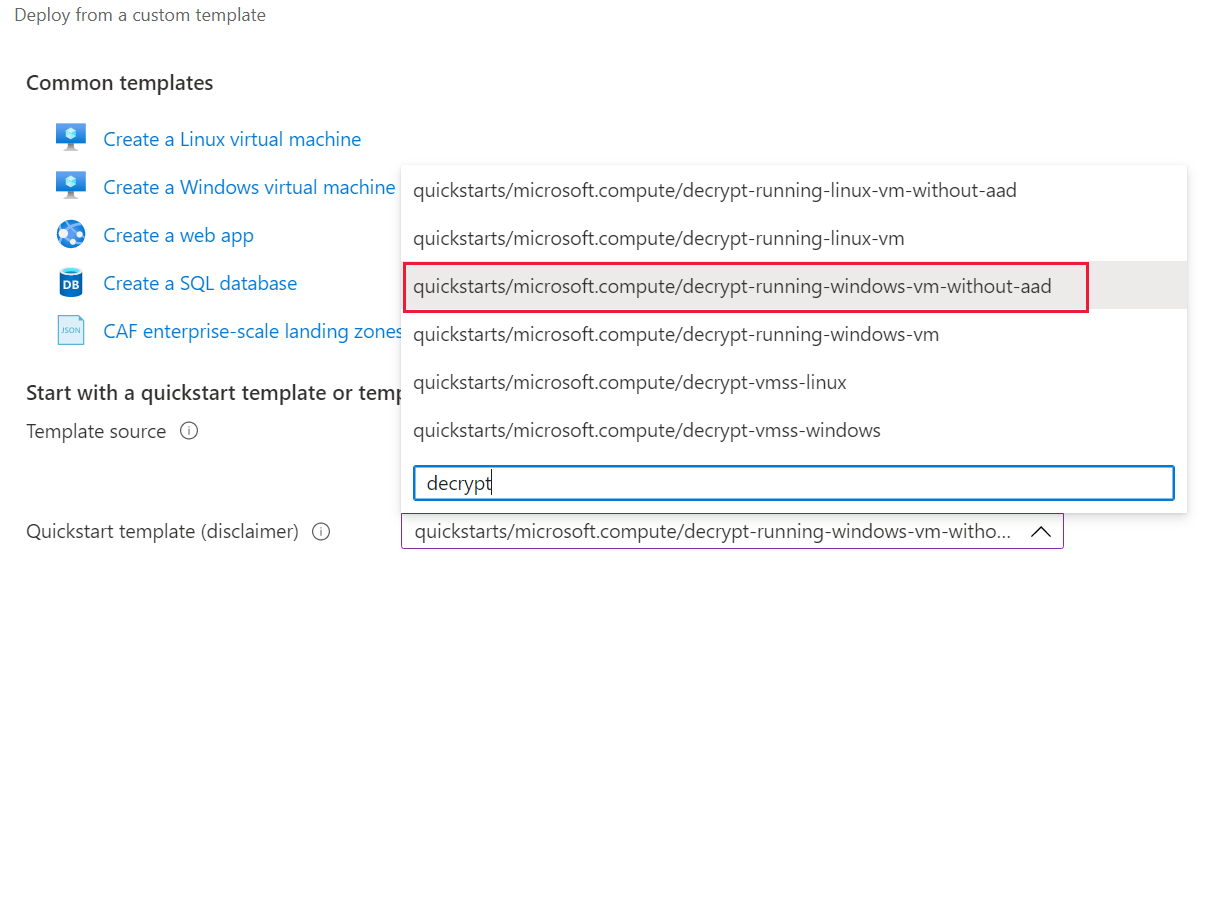Exercise - Use a Resource Manager template to decrypt the VM
In this unit, you use an Azure Resource Manager template to decrypt the Windows virtual machine (VM) you created earlier. The OS drive on your Windows VM was also encrypted. However, the OS drive doesn't have any confidential information on it, so you can leave it unencrypted. Let's use a template to decrypt the OS drive.
Decrypt a VM using an Azure Resource Manager template
Here, you use a template that Microsoft published on GitHub which is designed specifically to decrypt a running Windows VM.
Sign in to the Azure portal with the same account you used to activate the sandbox.
On the Azure portal menu or from the Home page, select Create a resource.
In the search box, enter Template deployment.
From the resulting list, select Template deployment (deploy using custom templates). The Template deployment (deploy using custom templates) appears.

Select Create. The Custom deployment pane appears.
On the Select a template tab, enter the following values for each setting.
Setting Value Start with a quickstart template or template spec Template source Quickstart template Quickstart template (disclaimer) Select the field, then enter decrypt-running-windows-vm-without-aad and select the decrypt-running-windows-vm-without-aad template. 
To launch the template runner, select Select template. The Disable encryption on Windows VM encrypted without AAD pane appears.
On the Basics tab, enter the following values for each setting.
Setting Value Project details Subscription Concierge Subscription Resource group Select the sandbox resource group [sandbox Resource Group] . When you select the resource group, it autoselects the region as well.Instance details Region Autoselected by your Resource group selection. Vm Name Enter fmdata-vm01 Volume Type Accept default All Force Update Tag Accept default Location Accept default Select Review + create.
After validation passes, select Create.
The deployment might take a few minutes to complete.
Verify the encryption status of the VM
In Cloud Shell, check the encryption status.
$vmName = "fmdata-vm01"
$rgName = "<rgn>[sandbox Resource Group]</rgn>"
Get-AzVmDiskEncryptionStatus -ResourceGroupName $rgName -VMName $vmName
Now, the OS disk isn't encrypted.
OsVolumeEncrypted : NotEncrypted
DataVolumesEncrypted : NoDiskFound
OsVolumeEncryptionSettings : Microsoft.Azure.Management.Compute.Models.DiskEncryptionSettings
ProgressMessage : [2.2.0.36] Disable Encryption completed successfully